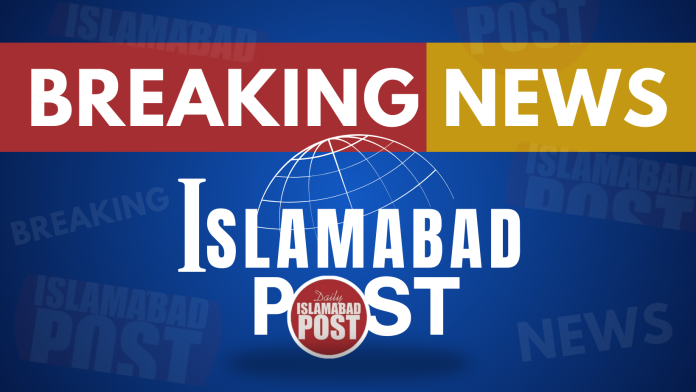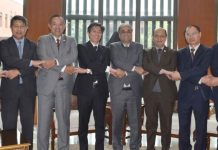ISLAMABAD, AUG 04 (DNA) — A prominent advocate for human rights in Kashmir Barrister Sundas Malik Sunday vehemently condemned India’s widespread and systemic abuses of fundamental human rights (HR) in the region and urged the international community to take immediate and decisive action to halt these injustices.
In an exclusive interview with Radio Pakistan in connection with Youm-e-Istehsal-e-Kashmir, she condemned India’s unilateral actions, particularly the revocation of Article 370 of its Constitution, which she said was unjustified and illegitimate.
She said that the people of Indian Illegally Occupied Jammu and Kashmir (IIOJK) want a free and fair plebiscite to decide their future, highlighting that the abrogation of Article 35-A was a deliberate move to alter the region’s demographic composition. She suggested that global powers could impose sanctions on the Indian government or its military to pressure India into reversing its August 5, 2019, actions.
She stressed that the international community must adopt a more robust and assertive stance to combat the egregious human rights violations in Kashmir, rather than turning a blind eye to these atrocities due to economic interests. The appalling scale of abuses, including genocide, ethnic cleansing, and crimes against humanity, demands an immediate and collective response, she added.
The global community must recognize the inherent value of human rights and take decisive action, including diplomatic pressure, economic sanctions, and support for independent investigations, to hold perpetrators accountable and ensure justice for the Kashmiri people, she mentioned.
Replying to a question, she said that the human rights report has laid bare India’s glaring failures in addressing systemic discrimination and draconian laws targeting minority communities, particularly in Kashmir. The report exposes a distressing pattern of state-sponsored violence, arbitrary detentions, and blatant disregard for due process, perpetuating a culture of impunity and fear, he said.
She said there has been no progress for the people in IIOJK, where businessmen, farmers, and individuals face ongoing suppression and intimidation. The report’s findings serve as a stark reminder of India’s obligations under international human rights law and the urgent need for reform to protect the rights and dignity of all individuals, regardless of their religion, ethnicity, or political beliefs, she mentioned.
“The BJP government’s failure to provide adequate legal assistance to imprisoned top Kashmiri leaders is a glaring travesty of justice and a stark reminder of the systemic bias that pervades India’s judicial system”, she added.
Despite repeated appeals, the BJP Supreme Court has failed to provide timely and effective relief to these leaders, who have been languishing in jail for years without fair trial or due process, she highlighted.
Responding to a query, she further criticized that the Kashmir valley has been a contentious region for many decades, and there have been concerns about press freedom and the ability of journalists to report on the situation there. In recent years, there have been allegations that the Indian government has restricted access to the region for journalists and has pressured media outlets to present a particular narrative about the situation in Kashmir, she added.
“The international community must recognize the stark realities of the Kashmir crisis and acknowledge the sufferings of the Kashmiri people”, she added. For decades, they have endured human rights abuses, military crackdowns, and restrictions on their freedom of expression and movement, she said, adding, the world cannot continue to turn a blind eye to the plight of Kashmiris, who are subjected to collective punishment, extrajudicial killings, and enforced disappearances.
The international community must demand transparency, accountability, and a peaceful resolution to this longstanding conflict, ensuring that the rights and dignity of the Kashmiri people are respected and protected, she added. — DNA












